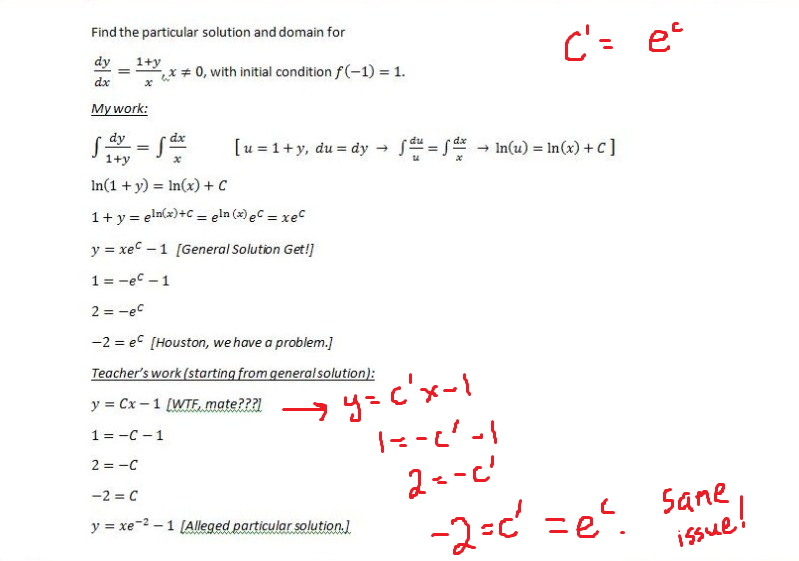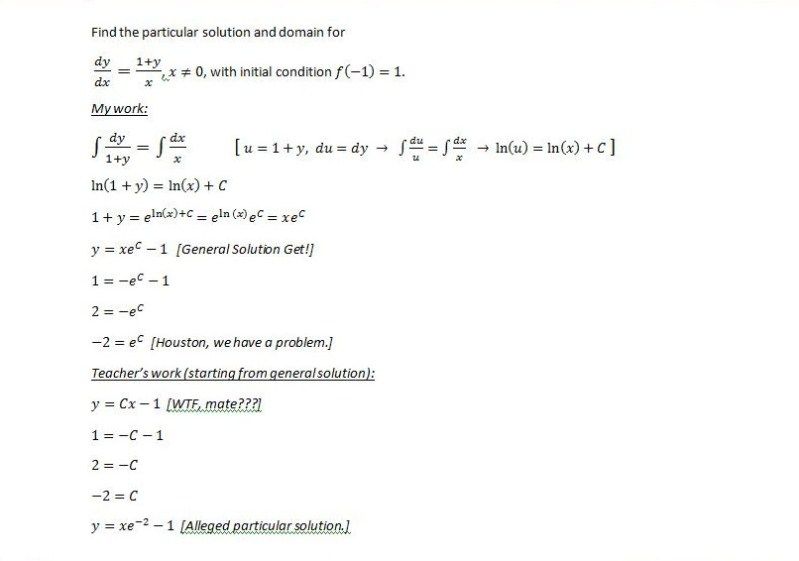Ok, I know this is a bit of a bump, but I just want to clarify that even if your teacher was trying to use the argument that e^c is still equal to a constant, she still did it wrong.
It's completely mathematically sound to say that e^c is equal to some constant, but you have to distinguish the new constant from the one to whose power e is being raised. My professors usually call the new constant, which is equal to e^c, c'. So c'=e^c
Obviously, this is just to show they are both constants. THEY ARE NEVER EQUAL FOR ANY REAL C. So you have c' =/= c, but they are both constants.
Now let's look at your teacher's completely incorrect work.

As you can see, her original statement was just, in that y=(some constant, we call it c', she calls it c)*x - 1. She ends up with 2=-(constant we call c' she calls c).
The PROBLEM is that she goes back and says THAT c, the one we call c', is EQUAL to the c in e^c. Which is horse****.
So actually her work, if she hadn't gotten constants confused, is saying the exact same thing yours is.
So you were right all along; the e^c MUST equal -2. She just went ahead and said that -2=e^(-2) which makes no sense.
tl;dr you were right, the problem doesn't have a real solution, your teacher's solution implies that -2=e^-2 which is dumb
Just thought I'd clarify that you are right
I believe in second chances, and that's why I believe in you.


